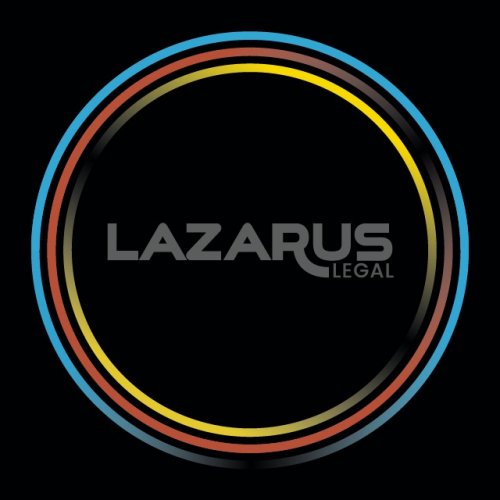Best Communications & Media Law Lawyers in Sydney
Share your needs with us, get contacted by law firms.
Free. Takes 2 min.
List of the best lawyers in Sydney, Australia
About Communications & Media Law in Sydney, Australia
Communications & Media Law in Sydney, Australia, plays a critical role in regulating the handling, dissemination, and content of information through various media and communication channels. This legal field covers television, radio, print, and digital media, ensuring compliance with broadcasting regulations, content standards, defamation laws, and privacy policies. Lawyers specializing in this area offer advice and representation on issues related to censorship, freedom of expression, intellectual property rights, and advertising legislation. As the digital landscape evolves, the field increasingly addresses online platforms and social media disputes.
Why You May Need a Lawyer
Individuals and organizations often require legal assistance in Communications & Media Law for the following reasons:
- Handling cases of defamation or libel in media publications or social media.
- Navigating complex broadcasting regulations and licensing agreements.
- Compliance with censorship laws and content standards set by authorities.
- Resolving disputes over intellectual property rights and copyright infringements.
- Understanding privacy laws, particularly with the increasing importance of data protection.
- Advising on advertising regulations to prevent misleading or deceptive practices.
- Handling litigation related to telecommunications and internet service provision.
Local Laws Overview
Key aspects of Sydney's local laws relevant to Communications & Media Law include:
- Broadcasting Services Act 1992: Governs television and radio broadcasting, including content standards and licensing.
- Defamation Act 2005: Establishes the legal framework for defamation and the defenses available in media-related disputes.
- Privacy Act 1988: Regulates the collection, use, and disclosure of personal information by organizations, requiring adherence to Australian Privacy Principles.
- Copyright Act 1968: Provides protection for creators and owners of original works, including media content, against unauthorized use.
- Australian Consumer Law: Addresses issues like false advertising and ensures fair trading practices in media enterprise dealings.
- Telecommunications Act 1997: Covers the regulation of telecommunication services and infrastructure, vital for media distribution channels.
Frequently Asked Questions
What does Communications & Media Law cover?
This legal area covers the regulation of media content, broadcasting, licensing, intellectual property, defamation, privacy, and advertising laws.
Do I need a lawyer for a defamation case on social media?
Yes, a lawyer can help assess your case, navigate legal proceedings, and advise on potential defenses or settlements in defamation matters.
How do I ensure compliance with broadcasting regulations?
Consult with a lawyer to understand the specific licensing requirements, content standards, and enforcement actions relevant to your media enterprise.
What are the key privacy concerns for media providers?
Key concerns include data protection, consent for information usage, and compliance with privacy principles under the Privacy Act 1988.
What are the penalties for misleading advertising?
Penalties can include fines, corrective advertising, and litigation under the Australian Consumer Law, necessitating legal guidance for compliance.
Is online content subject to the same defamation laws as print media?
Yes, online content is subject to defamation laws, and legal action can be pursued for false statements damaging someone's reputation.
How do copyright laws affect media creation and distribution?
Copyright laws protect creators by granting exclusive rights to use, reproduce, and distribute their content, making legal advice crucial for compliance.
What should I do if I'm accused of copyright infringement?
Seek legal advice immediately to evaluate the claim, review your content usage, and determine potential defenses or settlement options.
Are there specific laws for advertising on digital platforms?
Yes, advertising on digital platforms must comply with advertising standards and consumer law to avoid claims of misleading representations.
Can media and communication laws vary by state?
While Australia has federal laws, there can be state-specific regulations and practices, requiring localized legal insights for compliance and enforcement.
Additional Resources
For further help, consider exploring these resources and organizations:
- Australian Communications and Media Authority (ACMA): Provides guidelines and maintains codes of practice for media and communications.
- Australian Broadcasting Corporation (ABC): Offers insights into media standards and public broadcasting policies.
- Arts Law Centre of Australia: A legal center offering advice to artists and those involved in the entertainment and media industries.
- Australian Copyright Council: A resource for understanding copyright laws and how they affect media products and services.
Next Steps
If you need legal assistance in Communications & Media Law, consider the following steps:
- Identify the specific area of legal help you need, whether it’s broadcast compliance, a defamation case, privacy concerns, or copyright issues.
- Research and select a lawyer or legal firm specializing in Communications & Media Law in Sydney with the relevant experience and expertise.
- Prepare all relevant documents and information pertaining to your case or inquiry to facilitate a comprehensive legal consultation.
- Discuss your needs, the scope of representation, and the potential costs involved in your initial consultation.
- Follow up with your lawyer for ongoing advice and legal representation tailored to your specific circumstances.
Lawzana helps you find the best lawyers and law firms in Sydney through a curated and pre-screened list of qualified legal professionals. Our platform offers rankings and detailed profiles of attorneys and law firms, allowing you to compare based on practice areas, including Communications & Media Law, experience, and client feedback.
Each profile includes a description of the firm's areas of practice, client reviews, team members and partners, year of establishment, spoken languages, office locations, contact information, social media presence, and any published articles or resources. Most firms on our platform speak English and are experienced in both local and international legal matters.
Get a quote from top-rated law firms in Sydney, Australia — quickly, securely, and without unnecessary hassle.
Disclaimer:
The information provided on this page is for general informational purposes only and does not constitute legal advice. While we strive to ensure the accuracy and relevance of the content, legal information may change over time, and interpretations of the law can vary. You should always consult with a qualified legal professional for advice specific to your situation.
We disclaim all liability for actions taken or not taken based on the content of this page. If you believe any information is incorrect or outdated, please contact us, and we will review and update it where appropriate.














